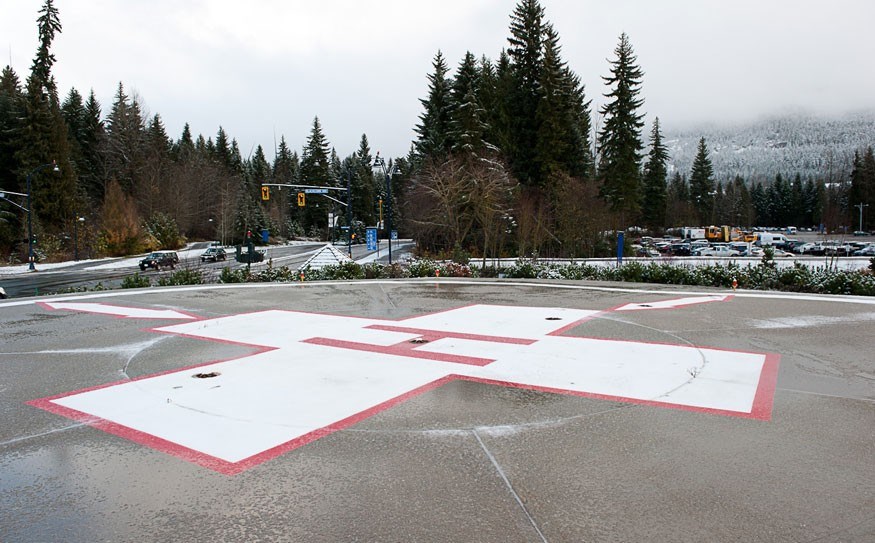Transport Canada and the Vancouver Coast Health Authority (VCHA) are looking at what is required to clear the way for single-engine helicopters to land at the Whistler Health Care Centre (WHCC) helipad.
Brent Alley, the Executive Director of Capital Projects with VCHA, confirmed that a consultant has been hired to look into what it would take and then report back on the logistics along with the costs. He said the consulting company is starting on the project next week with an inspection of the area.
"We don't know if we can afford this but we certainly feel we've got the will from the municipality," said Alley.
He said he expects the consultants will come back with recommendations to cut more trees and lower some light posts. "We're not making any commitments at this point," said Alley. "We're looking into it and it is our goal to be good partners with the community."
Whistler Mayor Nancy Wilhelm-Morden is aware of the latest discussions about the helipad. She said any work that needs to be done on Resort Municipality of Whistler (RMOW) land would be looked at then taken to council for a decision if VCH is prepared to pay for the work. She added that she doesn't want to see another 15-month closure of the helipad to complete another round of upgrades
"This is an issue between VCH and Transport Canada and we're kind of bystanders in all of this," said Wilhelm-Morden. "We need to hear from them with more detail."
Rescue workers Andrew Murdock, Wayne Flann and Brad Sills all know well that 20 minutes could be the difference between life and death.
All three have been vocal about their concerns over the landing restrictions currently in place at the WHCC. Those restrictions force single-engine helicopter pilots to fly right past the WHCC to the heliport at the north end of Whistler so patients can then be transported by ambulance back to the WHCC, a process that can take 20 minutes.
Murdock is a helicopter pilot who has transported injured people off the mountains for medical care.
"There seems something wrong with over flying a heliport at which we have landed at for more than a decade safely, cutting into the critical golden hour and potentially costing someone their life," Murdock wrote in a Pique letter to the editor.
Murdock was prompted to write his letter after a notice was circulated by Transport Canada making it clear that single-engine helicopters are not permitted to land at the WHCC, even if the passenger requires immediate life-saving treatment.
Brad Sills of Whistler Search and Rescue voiced his frustration and concern about this situation back in February of 2011.
"Most of the helicopters in the local fleets around Whistler, Pemberton and Squamish, are single engine," Sills told Pique.
"We're still restricted as to what can come and go from there and my point is just that it needs to be fixed, whether it's money or more trees down. Whatever it is we have too much trauma in this town not to be able to bring people in and take them out in a hurry."
Flann recently wrote on his avalanches blog that single-engine aircraft need to have clearance to land at the WHCC.
In an interview, he said single-engine machines are often safer for use in mountain rescues. "It is all about the pilot, the machine and knowledge of what you're doing," said Flann. "That's basically what makes medivacs and rescues work really well."
Murdock and Flann are both urging Whistler residents to lobby for changes that they say will save lives.
The previous council opposed the removal of trees required to allow single engine aircraft to land at the WHSS.
According to Wilhelm-Morden, there's more to it than cutting down trees but she said Whistler council is open to learning what it will take to clear the way for single-engine helicopter landings at the WHSS.




